How Bilingualism Strengthens Social and Emotional Development
20 February 2025
In today's increasingly interconnected world, knowing more than one language isn’t just a cool party trick—it’s a superpower! You’ve probably heard people rave about how bilingualism can boost cognitive skills and open up job opportunities, but have you ever stopped to think about how it affects social and emotional development? Well, as it turns out, being bilingual isn't just about speaking two languages; it’s about seeing the world in two distinct ways. And this can have profound effects on how we interact with others and manage our emotions.
In this article, we'll dive deep into how bilingualism strengthens social and emotional development. Whether you're a parent raising a bilingual child, a language enthusiast, or just curious about the topic, you’re in the right place. Let’s walk through the wonderful benefits bilingualism brings to our emotional and social lives!
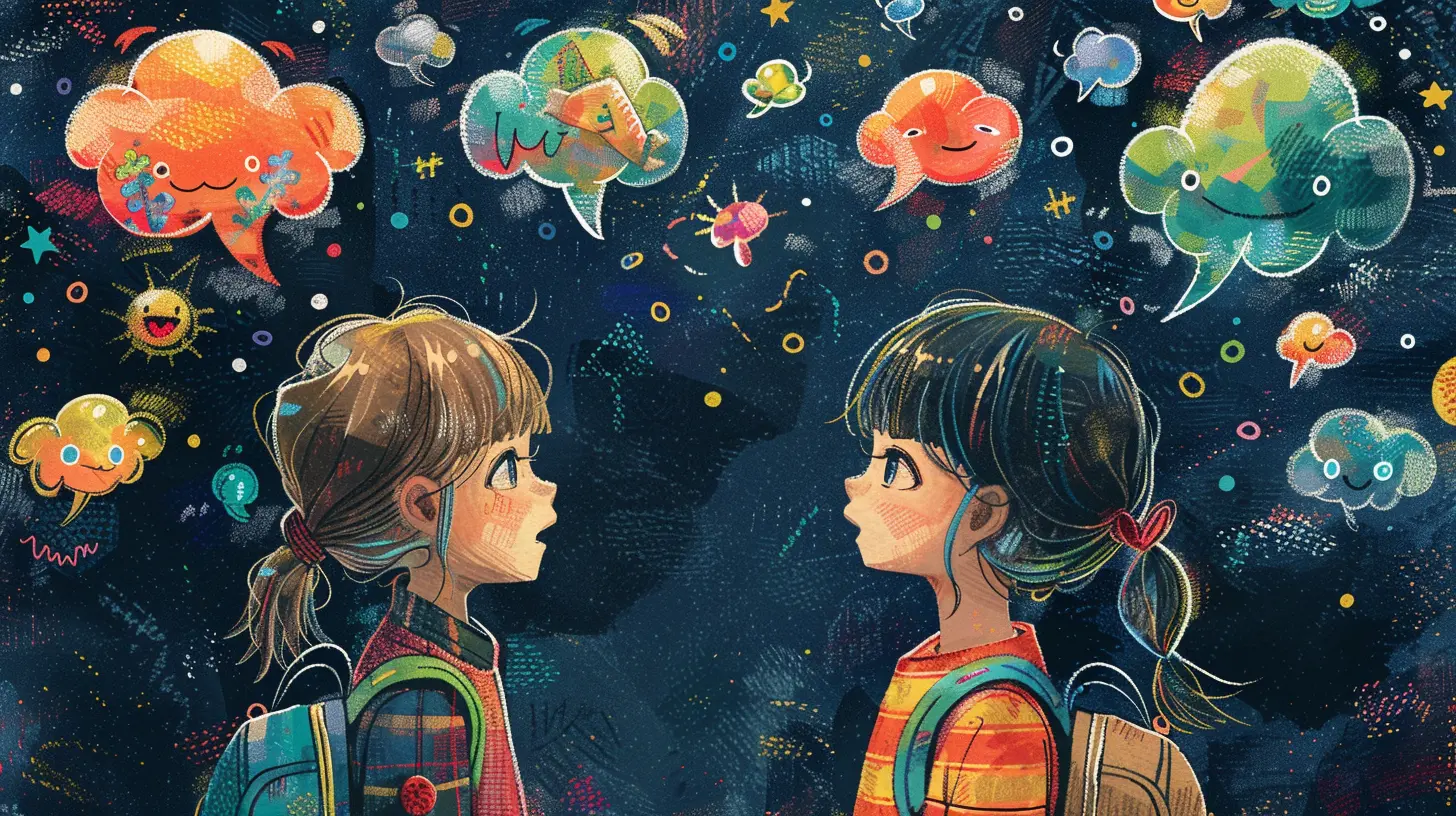
What Exactly Is Bilingualism?
Before we get too far, let's make sure we’re all on the same page. Bilingualism is the ability to speak and understand two languages fluently. It’s not about being perfect in both languages—it’s about being able to communicate effectively in them. Some people grow up in bilingual households, while others become bilingual later in life through education or travel. Either way, it's an amazing skill that comes with some serious perks.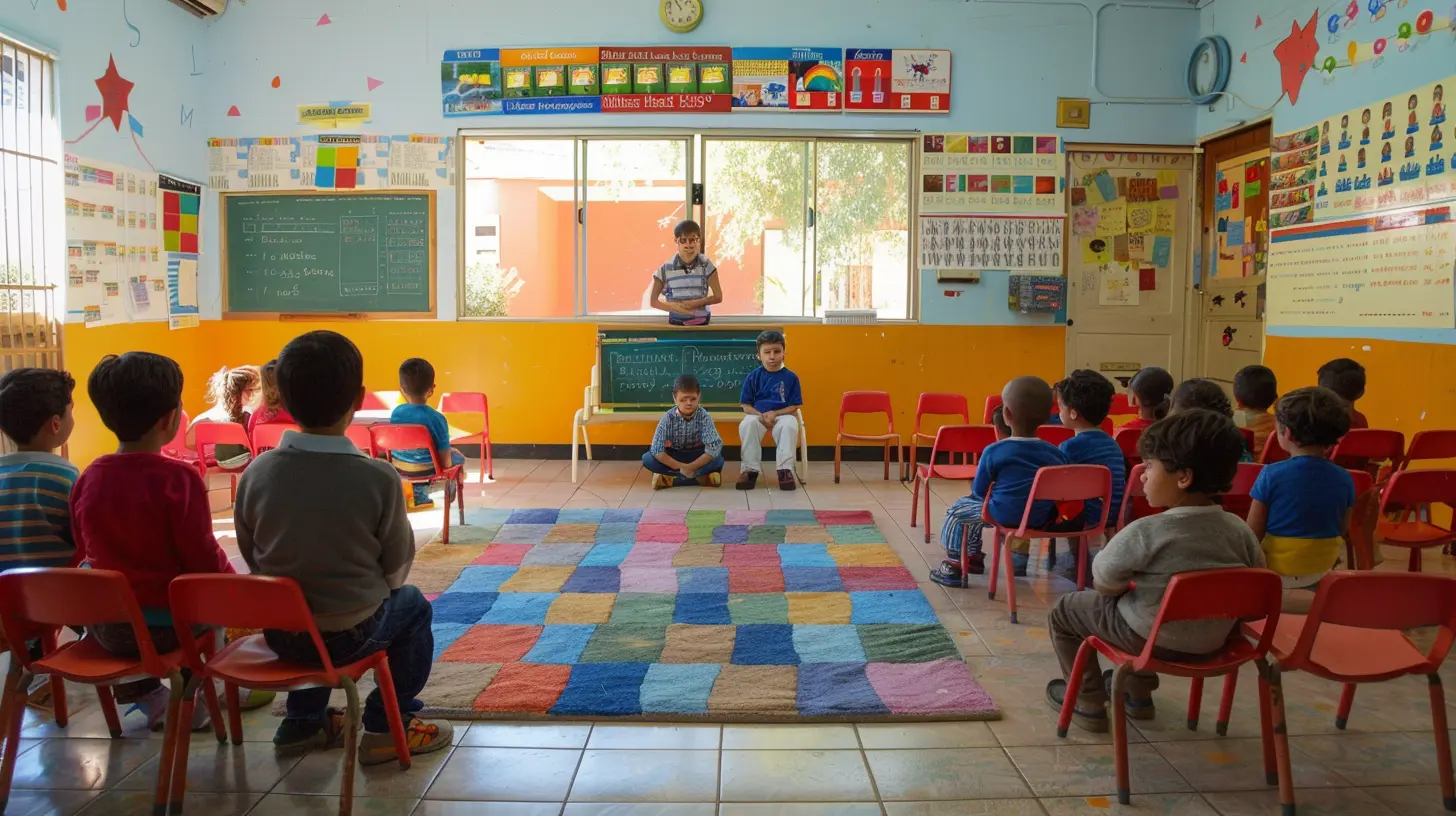
The Emotional Benefits of Bilingualism
1. Enhanced Emotional Regulation
One of the most surprising benefits of being bilingual is how it helps with emotional regulation. Emotional regulation is essentially how well we can control our emotions, especially in stressful or challenging situations. Bilingual individuals tend to be better at managing their feelings, and here’s why:When you speak two languages, you're constantly switching between them. This process, called "code-switching," requires a lot of mental flexibility. The brain gets really good at navigating between two sets of rules, grammar, and vocabulary. Over time, this mental juggling translates into an enhanced ability to manage emotions. Think of it like going to the gym—your brain gets some serious exercise in self-control!
2. Empathy and Understanding
Ever noticed how language shapes the way we think? Each language comes with its own set of cultural norms, expressions, and idioms. When you’re bilingual, you’re exposed to two different worldviews. This exposure fosters greater empathy because you learn to see things from multiple perspectives.For instance, a bilingual child might recognize that certain words or phrases don’t translate directly into another language. This realization can make them more patient and understanding when communicating with others, especially those from different cultural backgrounds. It’s like having a backstage pass to the intricacies of human connection!
3. Reduced Anxiety and Stress
Let’s face it—life can get stressful. But here’s the cool thing: studies have shown that bilingual children and adults tend to have lower levels of anxiety compared to their monolingual peers. Why? One theory is that the ability to switch between languages gives bilingual individuals a greater sense of control over their environment. It’s like having an extra tool in your emotional toolbox. When they feel overwhelmed, they can "switch" to another language or cultural framework, offering a subtle detachment from stress.4. Greater Self-Awareness
Bilingualism doesn’t just allow you to communicate in two languages—it also makes you more aware of how you communicate. Bilingual individuals often develop a heightened awareness of body language, tone, and emotional cues. This increased self-awareness can lead to better emotional intelligence, which is an essential ingredient for strong social connections and emotional well-being.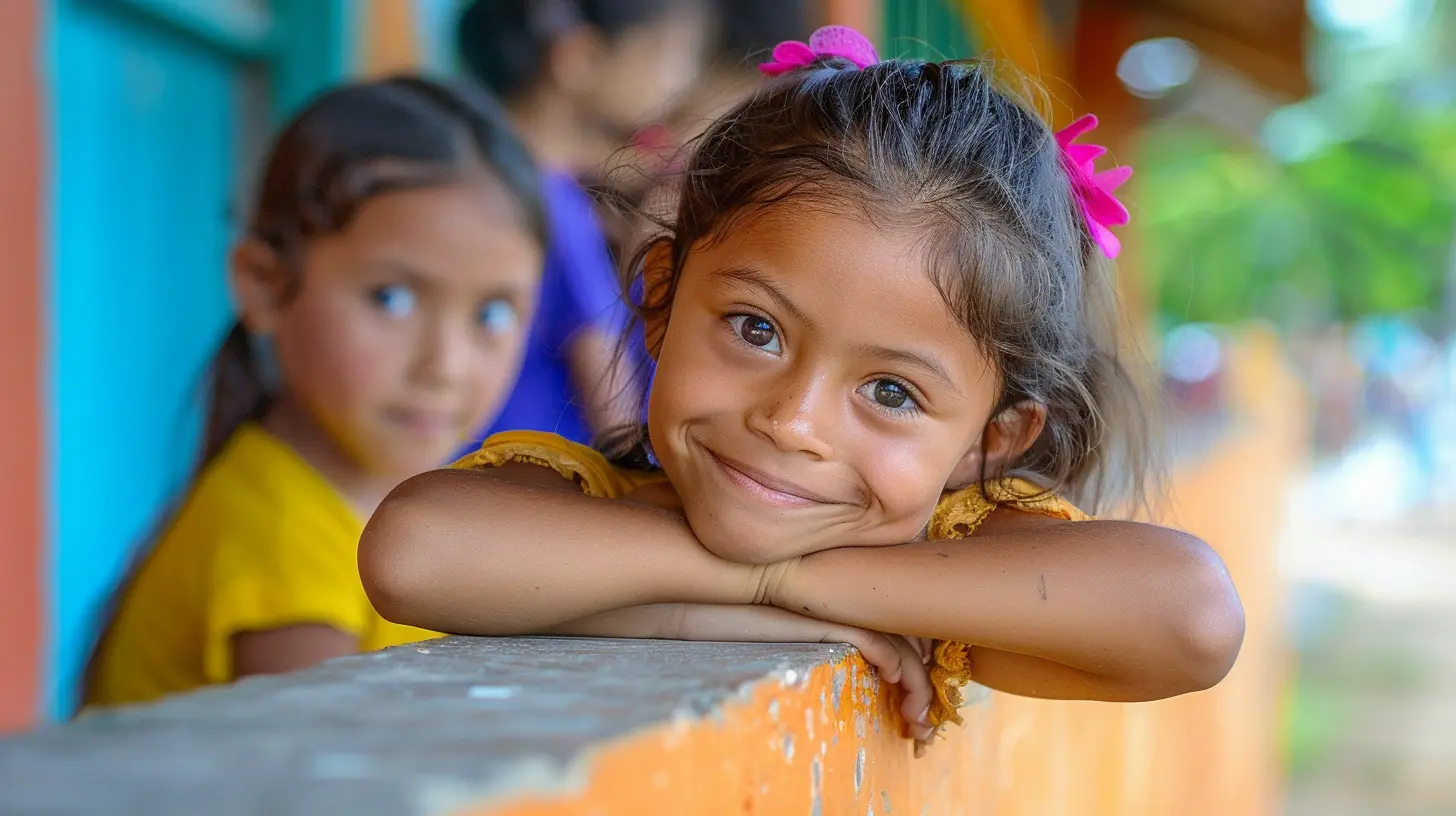
Social Benefits of Bilingualism
1. Improved Social Communication Skills
If there’s one area where bilingualism shines, it’s in social communication. Being able to speak two languages naturally means you can interact with a wider range of people. But it’s more than just having a bigger social circle—it’s about how you interact with others.Bilingual individuals often develop better listening skills because they’re used to paying close attention to context, tone, and non-verbal cues. This makes them more effective communicators in social situations. Think about it—when you're trying to navigate between two languages, you’re constantly picking up on subtle signals to ensure you're understood. Over time, this ability to "read the room" becomes second nature.
2. Stronger Interpersonal Relationships
Bilingual people often form stronger interpersonal relationships because they can connect with individuals from different cultural backgrounds. When you speak someone’s native language, it’s like opening the door to a deeper connection. You’re not just exchanging words—you’re sharing a part of their identity.Additionally, bilingual individuals often find themselves acting as cultural bridges, helping to mediate and resolve conflicts between people from different linguistic backgrounds. For instance, a bilingual child in a multicultural classroom might help classmates understand each other better, fostering a more inclusive and empathetic environment.
3. Adaptability and Flexibility in Social Settings
Bilingual people are often more adaptable in social settings. Why? Because they’re used to navigating different languages and cultures. This adaptability extends beyond just language—it helps them adjust to new environments, social norms, and expectations more easily.Imagine being at a party where half the people are speaking Spanish and the other half are speaking English. A bilingual individual can effortlessly move between conversations, adapting their communication style as needed. This flexibility is a huge advantage in today’s globalized world, where the ability to interact with diverse groups is key to forming meaningful relationships.
4. Cultural Awareness and Sensitivity
When you’re bilingual, you're exposed to not just two languages but two cultures. This gives you a richer understanding of cultural nuances, traditions, and social norms. Bilingual people are often more culturally sensitive, which helps them navigate complex social situations with ease.For example, certain gestures, expressions, or even tones of voice can have very different meanings depending on the culture. Bilingual individuals are more likely to pick up on these differences and adjust their behavior accordingly, which can prevent misunderstandings and build stronger connections.

Bilingualism and Emotional Development in Children
1. Boosts Confidence
For children, learning a second language can be a huge confidence booster. As they develop the ability to communicate in two languages, they gain a sense of accomplishment and pride. It’s like learning how to ride a bike for the first time—once you master it, you feel unstoppable!This newfound confidence spills over into other areas of their life, too. Bilingual children might feel more comfortable speaking up in class, making new friends, or even trying out new hobbies. Their bilingualism becomes a source of strength, helping them tackle challenges with a positive mindset.
2. Promotes Social Inclusion
In multicultural settings, bilingual children often serve as connectors between different language groups. This ability can make them feel more included and less isolated, especially in diverse classrooms or communities. Being able to communicate with different social groups allows them to form friendships across cultural boundaries, promoting a sense of belonging and acceptance.3. Strengthens Family Ties
For many children, learning a second language is closely tied to their family’s heritage. Speaking the language of their parents or grandparents can strengthen family bonds and provide a deeper sense of identity. It can also foster a greater appreciation for their cultural roots, which is an important aspect of emotional development.The Cognitive Connection: How Bilingualism Supports Emotional Intelligence
We’ve already touched on how bilingualism enhances emotional regulation and self-awareness, but let’s take this a step further. Did you know that bilingual individuals often have higher levels of emotional intelligence (EQ)? Emotional intelligence is the ability to understand, manage, and express emotions effectively. Here’s how being bilingual supports this:- Better Problem-Solving Skills: Language switching requires problem-solving skills, and these skills naturally extend to emotional situations. Bilingual individuals are often better at finding solutions to conflicts and emotional challenges.
- Increased Empathy: As we discussed earlier, exposure to different cultures makes bilingual individuals more empathetic. They’re better at putting themselves in other people’s shoes, which is a key component of emotional intelligence.
- Improved Self-Control: The ability to switch between languages teaches discipline and self-control. This translates into better emotional self-regulation, helping bilingual individuals manage their emotions in challenging situations.
Addressing Common Myths About Bilingualism and Emotional Development
Before we wrap up, let’s quickly address a couple of common myths about bilingualism and emotional development.Myth 1: Bilingualism Confuses Children
Some people worry that learning two languages will confuse children or delay their language development. However, research has shown that bilingual children might take a little longer to reach certain language milestones, but they catch up quickly—and the long-term benefits far outweigh any initial delays.Myth 2: Bilingual Children Struggle with Identity
Another myth is that bilingual children might struggle with their sense of identity. In reality, most bilingual children embrace their dual-language upbringing, often developing a strong sense of pride in their cultural heritage. Bilingualism can actually strengthen their sense of self, giving them a unique and valuable perspective on the world.Conclusion: Bilingualism is More Than Just Words
By now, you probably realize that bilingualism is about so much more than just speaking two languages. It’s about emotional intelligence, empathy, social connection, and adaptability. Whether you’re raising a bilingual child or considering learning a second language yourself, the benefits go far beyond what you might expect. Not only does bilingualism enhance cognitive abilities, but it also plays a pivotal role in shaping our emotional and social lives.So, if you're on the fence about encouraging bilingualism in your life or your children’s lives, consider this: you're not just giving the gift of another language—you're providing a toolkit for navigating the complexities of human emotion and social interaction.
all images in this post were generated using AI tools
Category:
Bilingual EducationAuthor:

Monica O`Neal
Discussion
rate this article
17 comments
Virginia Frank
Thank you for sharing this insightful article! It’s fascinating to see how bilingualism can enhance social and emotional skills. As someone who values language learning, I appreciate the positive impacts it has on personal growth and connection with others.
March 29, 2025 at 7:54 PM

Monica O`Neal
Thank you for your thoughtful response! I'm glad you found the article valuable and share the appreciation for the benefits of bilingualism.
Heidi McFadden
Bilingualism enriches empathy and cultural awareness, fostering deeper social connections and emotional resilience.
March 20, 2025 at 3:32 AM

Monica O`Neal
Thank you for your insightful comment! Indeed, bilingualism plays a crucial role in enhancing empathy and cultural understanding, which are vital for building meaningful social connections and emotional strength.
Reina Wright
This article insightfully highlights how bilingualism fosters resilience and empathy in children, enhancing their social interactions and emotional intelligence. The link between language proficiency and personal development is a crucial area for further exploration.
March 15, 2025 at 12:53 PM

Monica O`Neal
Thank you for your insightful comment! I'm glad you found the connection between bilingualism, resilience, and empathy noteworthy—it's indeed a vital area for continued research.
Landon Simon
Bilingualism enhances social and emotional development by fostering empathy and cultural awareness. It equips individuals with better communication skills, enabling them to build stronger relationships and navigate diverse social environments effectively.
March 14, 2025 at 9:30 PM

Monica O`Neal
Thank you for your insightful comment! I completely agree that bilingualism plays a crucial role in enhancing empathy, cultural awareness, and communication skills, ultimately fostering stronger relationships in diverse settings.
Talis Gonzalez
This article compellingly illustrates how bilingualism enriches emotional intelligence and social skills, fostering deeper interpersonal connections.
March 14, 2025 at 12:03 PM

Monica O`Neal
Thank you! I'm glad you found the article compelling. Bilingualism truly does enhance our emotional and social abilities.
Cassidy McCarty
This article highlights the crucial role bilingualism plays in enhancing social and emotional growth. It's a valuable resource for parents and educators looking to support children's holistic development.
March 14, 2025 at 5:49 AM

Monica O`Neal
Thank you! I'm glad you found the article insightful and valuable for supporting children's growth. Bilingualism truly enriches their development in many ways.
Lena McPhail
Bilingualism enhances empathy and resilience.
March 13, 2025 at 8:47 PM

Monica O`Neal
Thank you for your insight! Bilingualism indeed fosters greater empathy and resilience by promoting diverse perspectives and adaptability in social situations.
Audrey McGee
Great insights! Bilingualism truly enhances social and emotional skills by fostering empathy and cultural understanding—essential tools for thriving in our diverse world. Thank you!
March 13, 2025 at 1:47 PM

Monica O`Neal
Thank you for your thoughtful comment! I'm glad you found the insights valuable. Bilingualism really does play a crucial role in enhancing empathy and cultural understanding.
Miranda Wyatt
This article highlights the profound benefits of bilingualism, showcasing how it enhances social skills and emotional intelligence in children. Great insights!
March 8, 2025 at 5:00 AM

Monica O`Neal
Thank you for your feedback! I'm glad you found the insights on bilingualism's impact on social skills and emotional intelligence valuable.
Jace McCarty
Absolutely loved this article! 🌟 Bilingualism isn’t just about words; it’s like having a superpower for social skills and emotional growth! Who knew that speaking two languages could make you a master communicator and empathy ninja? Keep spreading the bilingual magic! ✨💬
March 5, 2025 at 11:18 AM

Monica O`Neal
Thank you so much! I’m thrilled you enjoyed the article and appreciate your insightful take on the incredible benefits of bilingualism! 🌟✨
Aaron McGonagle
Bilingual joy boosts growth!
March 5, 2025 at 5:37 AM

Monica O`Neal
Thank you! Bilingualism indeed fosters growth by enhancing social connections and emotional resilience.
Zarenith Kane
Bilingual brains: double the languages, double the laughs, and double the emotional connections! 🌟
March 2, 2025 at 3:30 AM

Monica O`Neal
Absolutely! Bilingualism enriches not just language skills but also deepens emotional bonds and fosters a greater understanding of diverse perspectives. 🌍✨
Lark Phelps
What a wonderful read! Bilingualism truly enriches social and emotional growth, fostering deeper connections and empathy. It's amazing how language can enhance our understanding of others! Thanks for sharing!
March 1, 2025 at 3:58 AM

Monica O`Neal
Thank you so much for your thoughtful comment! I'm glad you enjoyed the article and appreciate the insights on bilingualism's impact on social and emotional growth.
Rachael McCracken
Thank you for this insightful article! It's fascinating to see how bilingualism can enhance social and emotional growth in children. Your research highlights the importance of nurturing language skills in early development.
February 28, 2025 at 9:46 PM

Monica O`Neal
Thank you for your kind words! I'm glad you found the article insightful. Bilingualism truly plays a crucial role in children's growth.
Vex McLaurin
This article highlights the profound impact of bilingualism on social and emotional growth, emphasizing improved empathy, communication skills, and cultural awareness in children. A must-read for educators!
February 28, 2025 at 11:28 AM

Monica O`Neal
Thank you for your kind words! I’m glad you found the article valuable for educators and appreciate your support of bilingualism's benefits.
Edward McLanahan
Embracing bilingualism is more than learning another language; it's a powerful tool for social and emotional growth. By fostering empathy and cross-cultural understanding, bilingual individuals become bridges in our diverse world, enhancing collaboration and connection. Let's champion bilingual education for a brighter, more inclusive future!
February 24, 2025 at 1:30 PM

Monica O`Neal
Absolutely! Bilingualism not only enhances communication but also fosters empathy and cultural understanding, creating stronger connections in our diverse society. Advocating for bilingual education is essential for nurturing these vital skills.
Logan Robinson
Two languages, double the fun! Who knew boosting emotions could come with a side of bilingual banter?
February 21, 2025 at 7:20 PM

Monica O`Neal
Absolutely! Bilingualism enriches emotional expression and enhances social connections, making interactions even more engaging and enjoyable.
MORE POSTS

How to Teach Summarization Skills Effectively

Growth Mindset in the Workplace: Building Resilient Teams
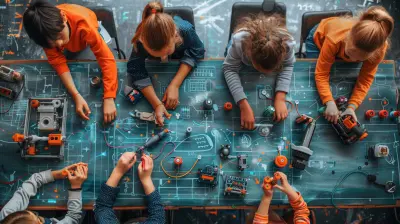
Maker Spaces in Schools: Inspiring Innovation Through Hands-On Learning

The Benefits of Co-Constructing Rubrics with Students

How to Tackle Long-Term Projects Without Feeling Overwhelmed

Fostering Global Citizenship with Bilingual Classrooms

Understanding ADHD in the Classroom: Practical Tips for Teachers

The Evolution of STEM Education: From Chalkboards to Cloud Computing
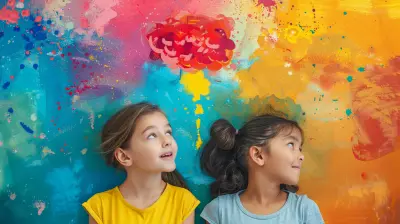
How Learning Two Languages Strengthens Memory Retention

How to Choose the Best Continuing Education Program for Your Goals

Growth Mindset for Teachers: Fostering Positive Change in the Classroom